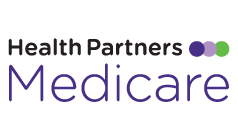Part D Transition Policy
Medicare Part D Transition Policy for New and Current Members of our Medicare Part D Prescription Drug Plans
We want to make sure that all new and current members have a smooth and safe transition to the new contract year and their Medicare Part D prescription benefit. Current members and new members, upon enrollment, receive benefit information including:
- A list of medications on the formulary
- Plan requirements and coverage limits
- The process for requesting a prior authorization or formulary exception
- How to use our online directory to locate network pharmacies, and how to request a printed directory
This information provides details on formulary medication and coverage requirements.
Health Partners Medicare will ensure that cost sharing for a temporary supply of drugs provided under our transition process will never exceed the statutory maximum copayment amounts for low-income subsidy (LIS) eligible members.
For non-LIS members, we will charge the same cost sharing for non-formulary Part D drugs provided during the transition that would apply for non-formulary drugs approved through a formulary exception in accordance with § 423.578(b) and the same cost sharing for formulary drugs subject to utilization management edits provided during the transition that would apply once the utilization management criteria are met.
Prior authorization or a formulary exception may be needed for medications that:
- Have other available options that are similarly effective, safe and are less expensive
- Have limited uses or dosing based upon scientific studies or FDA approval
- May be prescribed for conditions that are not a covered Part D benefit
- Are not on our formulary
- Require special handling or monitoring of labs
- Are prescribed with quantity limits that exceed FDA dosing parameters
If you are currently taking a medication that requires a formulary exception or prior authorization, we realize that you may need time to work with your provider to consider formulary alternatives or request authorization for coverage. Working with your health care provider is your best way of getting the most value from your Medicare Part D prescription benefit. You’ll avoid expensive prescription costs by considering available formulary options that have been proven to be equally effective and safe.
- For new members, you can receive a temporary supply (up to a 30-day supply) for Part D medications that are either non-formulary or subject to utilization management requirements or limitations (such as prior authorization, step therapy, or quantity limits) during the first 90 days of your eligibility. After your first 30-day supply, we will not pay for these drugs even if you have been a member of our plan for less than 90 days.
- For current members, you may receive a temporary supply (up to a 30-day supply) of a Part D medication you were taking that has either been removed from the formulary or has new utilization management requirements or limitations in the new contract year during the first 90 days of the new contract year. After your first 30-day supply, we will not pay for these drugs unless approved through the non-formulary exception process or through prior authorization.
- You can get multiple fills up to a 30-day supply within your transition period if your first prescription is for less than a 30-day supply. This applies to both new and current members.
- For members in long-term care facilities, you can fill a temporary supply (up to a 31-day supply) for Part D medications that are either non-formulary or subject to utilization management requirements or limitations during the first 90 days of your eligibility (unless the prescription is written by the prescriber for less than 31 days).
If you receive coverage for a temporary medication fill, we will notify you if a formulary exception determination or prior authorization is needed for continued coverage of your medication.
If you are a current member and have a change in treatment setting due to a change in the level of care you require, you can ask us to make a formulary exception.
Examples of level of care changes might include:
- Discharge from a hospital to home
- Ending your skilled nursing facility Medicare Part A stay (where payments include all pharmacy charges) and you now need to use your Part D plan
- Changing from hospice status and reverting back to standard Medicare Part A and B coverage
- Ending a long-term care stay and returning to the community
- Discharges from chronic psychiatric hospitals with highly individualized drug regimens
For these unplanned transitions, you can ask us to make a formulary exception or appeal for continued coverage of your drug. In addition, we will review requests for continuation of therapy on a case-by-case basis for members that have had a change in their level of care and are stabilized on drug regimens that if altered are known to have risks.
Additional information about the drugs we cover, prior authorization and the formulary exceptions and appeal processes, is available on our website or by calling Member Relations at 1-866-901-8000 (TTY 1-877-454-8477). From October 1 to March 31, we’re available 8 a.m. to 8 p.m., 7 days a week. And from April 1 to September 30, we’re available 8 a.m. to 8 p.m., Monday to Friday.
If you have general questions about Medicare prescription drug coverage, please call Medicare at 1-800-MEDICARE (1-800-633-4227) 24 hours a day, seven days a week. TTY users should call 1-877-486-2048. You can also visit www.medicare.gov.

